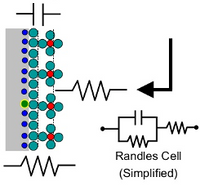Our research aims to enhance the real-time detection of chemical compositions in aqueous solutions used for biosensing, food safety, and water quality monitoring by developing advanced electrochemical sensing technologies, specifically through Electrochemical Impedance Spectroscopy (EIS). Traditional methods are often limited by high costs and a lack of real-time capabilities, which we seek to address by improving EIS with optimized electrode materials and design. EIS measures impedance responses to reveal chemical processes at the electrode-electrolyte interface, but distinguishing compounds is challenging due to overlapping phenomena. Our approach focuses on optimizing material composition and electrode geometry, while integrating artificial intelligence (AI) to refine data analysis, enhancing both detection limits and selectivity. This will result in a versatile, efficient, and scalable sensing platform with broad applications across various industries.
